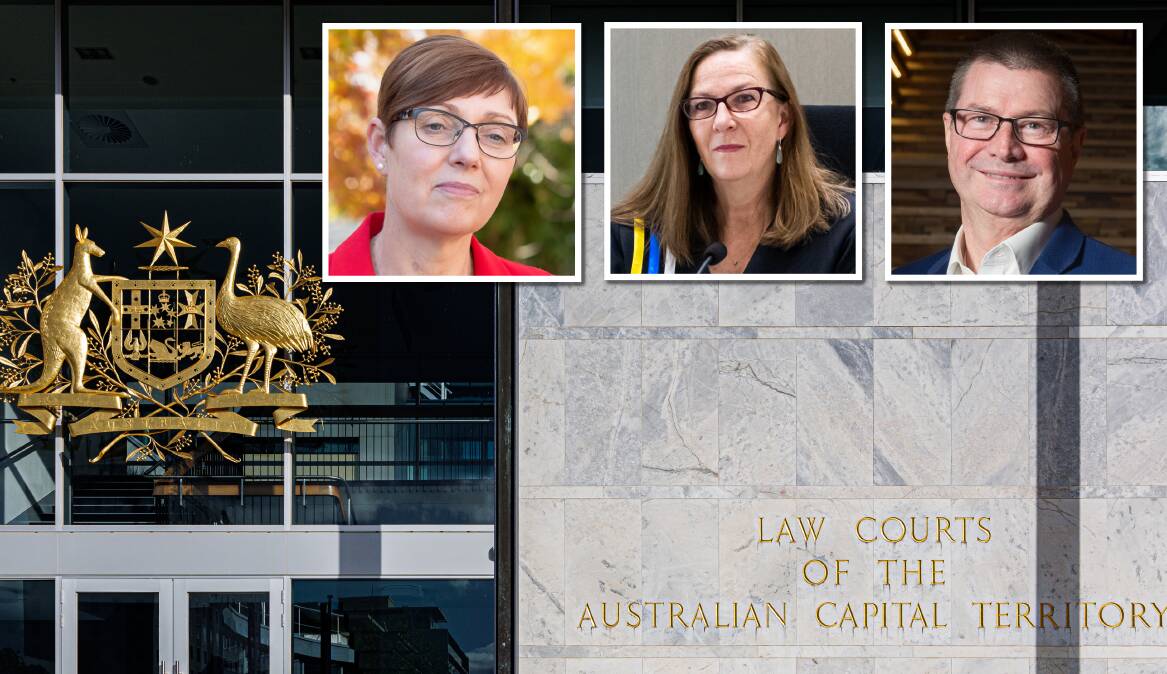The ACT government intends to keep working towards transitioning Calvary Public Hospital to territory control, Health Minister Rachel Stephen-Smith has said.
But the government will not be able to enter Calvary to start work on the takeover until two days after a formal transition period has begun.
Calvary Health Care ACT has begun legal proceedings against the territory government, and is seeking an injunction to stop its compulsory acquisition of the Bruce public hospital.
Ms Stephen-Smith said she could not comment on the legal proceedings but said she wanted Calvary national to provide certainty for staff. She said the government intended to continue working on the transition.
"What we're going to try and do is work through the process to de-conflict it as much as possible," she said.
"We'll try to work still as collaboratively as we can with Calvary to ensure that any conflict that's occurring in the legal process has the minimal possible impact on staff."
However, the government has agreed to not enter Calvary until a hearing on the possible acquisition scheduled for next Wednesday.
"The territory has agreed to hold off on exercising some powers under the act until the matter is heard next week," a government spokeswoman said.
The Health Minister has previously said she believed the government's legislation would withstand any legal challenge.
A spokesperson for Calvary said today's preliminary decision meant "business as usual" at the hospital until Wednesday.
"The territory cannot exercise any rights to enter hospital land, require information from Calvary or otherwise require Calvary to cooperate with it to effect any transition of the public hospital from Calvary to the territory up to and including the final hearing date," they said.

Lawyers representing both parties appeared before the ACT Supreme Court on Thursday.
The two sides eventually agreed on a hearing date, during which they are each set to make submissions.
Chief Justice Lucy McCallum set the full-day hearing for the possible injunction to begin on Wednesday morning.
It will be heard before a single judge, allowing an easier path to appeal if either side should wish to do so, rather than before the alternative bench of three.
Chief Justice McCallum said she can only preside over the hearing once the legislation has been enacted, which the court heard is either Thursday or Friday.
"I couldn't make an order today," the judge said.
The two sides were at odds on Thursday about how soon to hold the hearing, with ACT government lead counsel Nigel Oram telling the court Wednesday was too soon.
However, the date was set due to Chief Justice McCallum's schedule and the judge stating the need for "appropriate expedition" on the matter.
"Squeeze yourself into a vortex and make it by Wednesday, Mr Oram," she said.
The territory government has been ordered to submit written submissions by midday on Monday, while the court heard Calvary's were ready.
"It is very tight," the judge said.
"I know that is imperative on the respondent's own legislation."
The injunction, which is generally sought to legally prohibit a party from carrying out a specific act, would halt the government from enacting its transition plan.
This would in turn likely push back the announced official acquisition date of July 3 but the government is still working towards this date.
Canberra Health Services transition boss Cathie O'Neill said there were a series of plans for different scenarios.
"We have done a lot of planning from worst-case scenario to best-case scenario," she said.
"At the moment we feel we've got enough contingencies and safeguards in place to actually be able to meet that transition day."
When the legislation is notified, Calvary is required to appoint an executive to liaise with Canberra Health Services on the transition. Ms O'Neill said did not know if Calvary had chosen this person.
The government's legislation said Calvary would be paid compensation based on "just terms" but Calvary national chief executive Martin Bowles said he did not believe this was available under the proposed legislation.
"Our review of the proposed legislation and associated regulation indicates that just terms are simply not available and outside of this there is no indication that commercial terms are available to resolve this matter," he said.
More to come.
We've made it a whole lot easier for you to have your say. Our new comment platform requires only one log-in to access articles and to join the discussion on The Canberra Times website. Find out how to register so you can enjoy civil, friendly and engaging discussions. See our moderation policy here.







